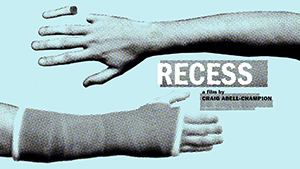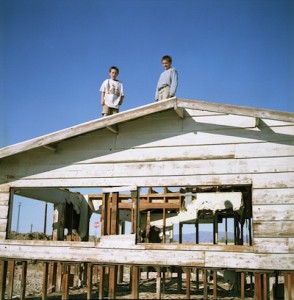 I like to tell myself there is great success to be found in the details. A justification for my own obsessive nature? Probably, but often true. Getting sucked up inside the tornado of sweeping, acute tasks necessary to get a film made has been easy. Distribution plans, business plans, breakdowns, pavement pounding, relationship building, due diligence and rewriting. Important details appear less important and fall by the way side. But, like Dorothy landing in Oz, I eventually find myself back in the land of detail. For example: a look book.
I like to tell myself there is great success to be found in the details. A justification for my own obsessive nature? Probably, but often true. Getting sucked up inside the tornado of sweeping, acute tasks necessary to get a film made has been easy. Distribution plans, business plans, breakdowns, pavement pounding, relationship building, due diligence and rewriting. Important details appear less important and fall by the way side. But, like Dorothy landing in Oz, I eventually find myself back in the land of detail. For example: a look book.
Author: Craig Abell-Champion
 As a moviegoer, I like to keep an open mind, but I also have a crisp understanding of what I like. Because I know this, I know there are other people who share my understanding and also like what I like. How do I know this? I see them leaving a theater as happy as I am about having watched a great film, sharing what they felt, taking that positive experience home with them. Knowing this affords me comfort in the simplest approach as a filmmaker. I write the types of stories that I would want to see and steer clear of pandering to a potential audience.
As a moviegoer, I like to keep an open mind, but I also have a crisp understanding of what I like. Because I know this, I know there are other people who share my understanding and also like what I like. How do I know this? I see them leaving a theater as happy as I am about having watched a great film, sharing what they felt, taking that positive experience home with them. Knowing this affords me comfort in the simplest approach as a filmmaker. I write the types of stories that I would want to see and steer clear of pandering to a potential audience.
One of the single greatest things,
 I was going to post about the fun and vitality of look books. Removing the writer’s hat and stepping into the director’s shoes to create the bridge that offers potential producers, managers or investors a first glimpse into how you intend to transform your story into a visually vibrant world. Next time. After reading an inspiring article by Ariston Anderson in Filmmaker Magazine about David Lynch, I slammed on my brakes to focus on a more esoteric topic: hope.
I was going to post about the fun and vitality of look books. Removing the writer’s hat and stepping into the director’s shoes to create the bridge that offers potential producers, managers or investors a first glimpse into how you intend to transform your story into a visually vibrant world. Next time. After reading an inspiring article by Ariston Anderson in Filmmaker Magazine about David Lynch, I slammed on my brakes to focus on a more esoteric topic: hope.
DL: “Looking back I did not have much self-assuredness in the beginning.”
Whether you enjoy his work or not, David Lynch is one of the most unique cinematic artists of our generation.
Welcome to the game that everyone trying to make a movie wish they would never have to play but do: Unhealthy Obsessive Persistence and Unlikely Approval! (Applause) What do we have for our contestant behind Door #1… wait, Door #1 is locked? Then what’s behind Door #2? A brick wall you say? What about Door #3? It just revolves back to point A. Congratulations! You don’t win! (Audience moans) Adding insult to injury, I have to pay for my own craft service.
At times, working to get a project noticed appears to dip into pointlessness,
 I am the fucking greatest! Ah, the wave of pride and misguided sense of accomplishment that one can ride having “finished” a script. Especially script number one. The real one, not the others before it, shat out only to be abandoned too late out of sentiment and denial. Don’t get me wrong; completing a script is hard work. The act itself is something to be proud of. What happened after I typed those last words wasn’t what I expected. A colossus weight lifted. For a day I felt serene. Then that wave of anarchic emotion that I’d expected kicked in and I felt complete…but was the script?
I am the fucking greatest! Ah, the wave of pride and misguided sense of accomplishment that one can ride having “finished” a script. Especially script number one. The real one, not the others before it, shat out only to be abandoned too late out of sentiment and denial. Don’t get me wrong; completing a script is hard work. The act itself is something to be proud of. What happened after I typed those last words wasn’t what I expected. A colossus weight lifted. For a day I felt serene. Then that wave of anarchic emotion that I’d expected kicked in and I felt complete…but was the script?
 Recap: This series chronicles my wide-eyed and crushingly insecure processes that pulled back the curtain on my ideas about filmmaking – revealing what it really takes to write and direct my movie, Recess. Occasionally I gain productive insights that plant me on less insecure ground. Others I still talk to my therapist about. Perhaps the most important insight I’ve kept – from teething as a writer – the idea that creating detailed, well-drawn characters with original voices can make even a script about a haunted doorknob compelling. I realize there may be infinite approaches more resolute but, for me, the haunted doorknob concept puts character development into perspective.
Recap: This series chronicles my wide-eyed and crushingly insecure processes that pulled back the curtain on my ideas about filmmaking – revealing what it really takes to write and direct my movie, Recess. Occasionally I gain productive insights that plant me on less insecure ground. Others I still talk to my therapist about. Perhaps the most important insight I’ve kept – from teething as a writer – the idea that creating detailed, well-drawn characters with original voices can make even a script about a haunted doorknob compelling. I realize there may be infinite approaches more resolute but, for me, the haunted doorknob concept puts character development into perspective.
Crafting a brilliant script. That’s all it takes to get a project noticed and “green lit”. This was my single-minded approach when I got the bright idea to start skipping down the indie filmmaking road. It was all so clear; admittedly up hill but I saw no potholes or wreckage to avoid. Nope. Curious sights and comfortable, clean rest areas amply stocked with fresh toilet paper lined my highway. The horizon seemed practically at arms length. My first detour: I had as much interest in writing a screenplay as Hunter S. Thompson probably did with the idea of writing sober.


